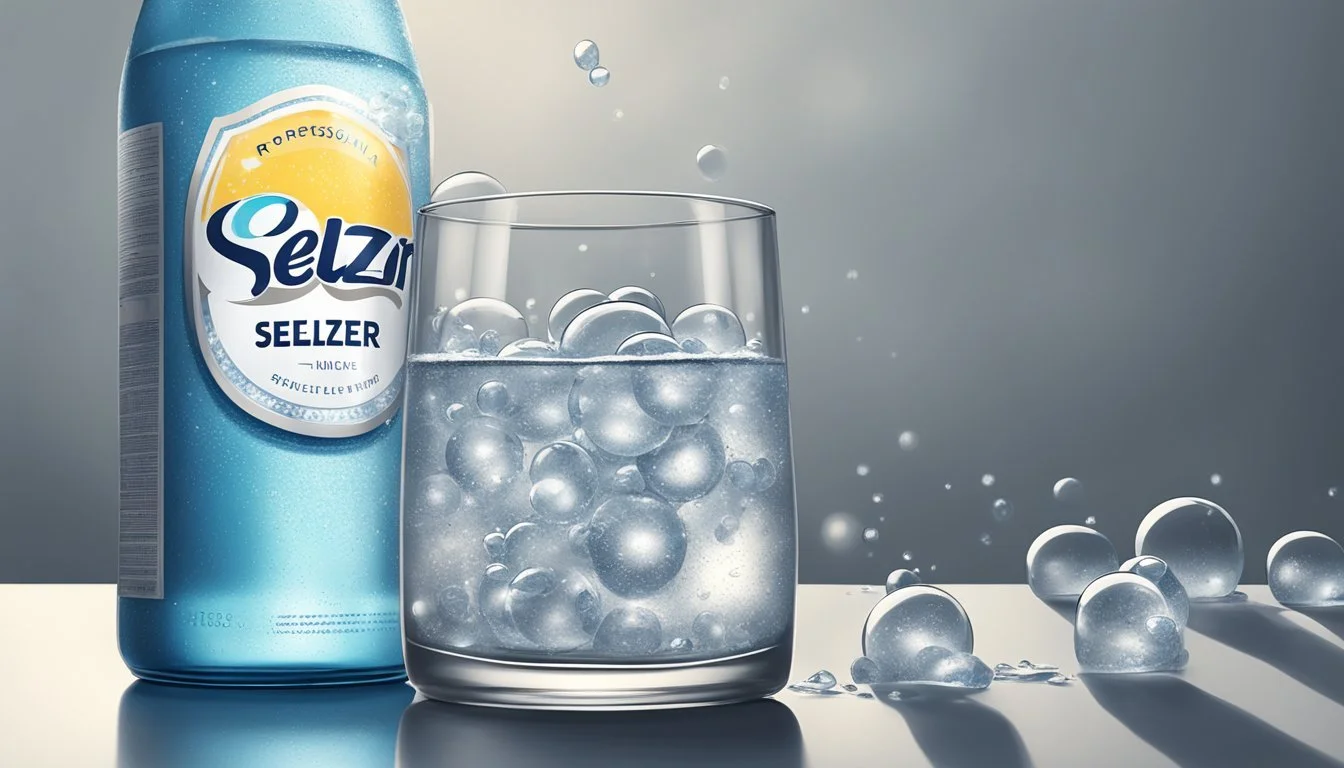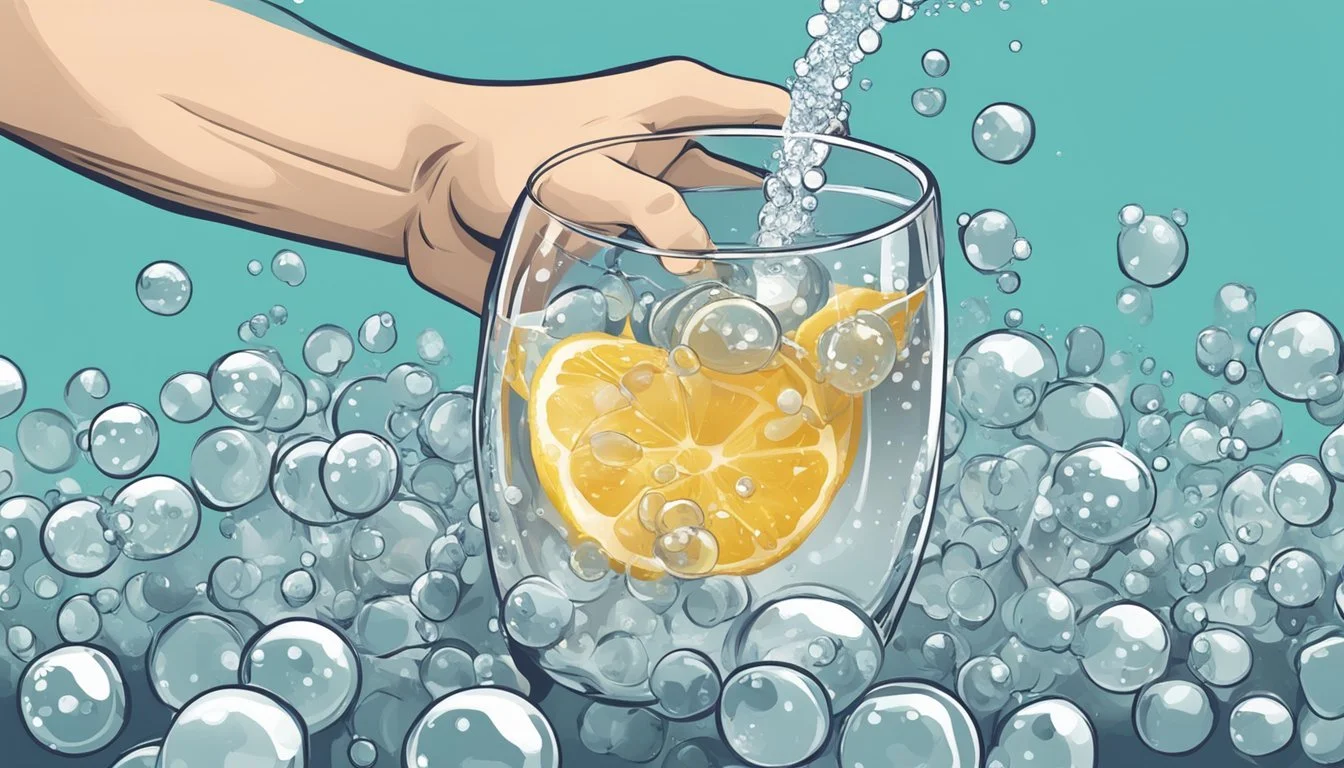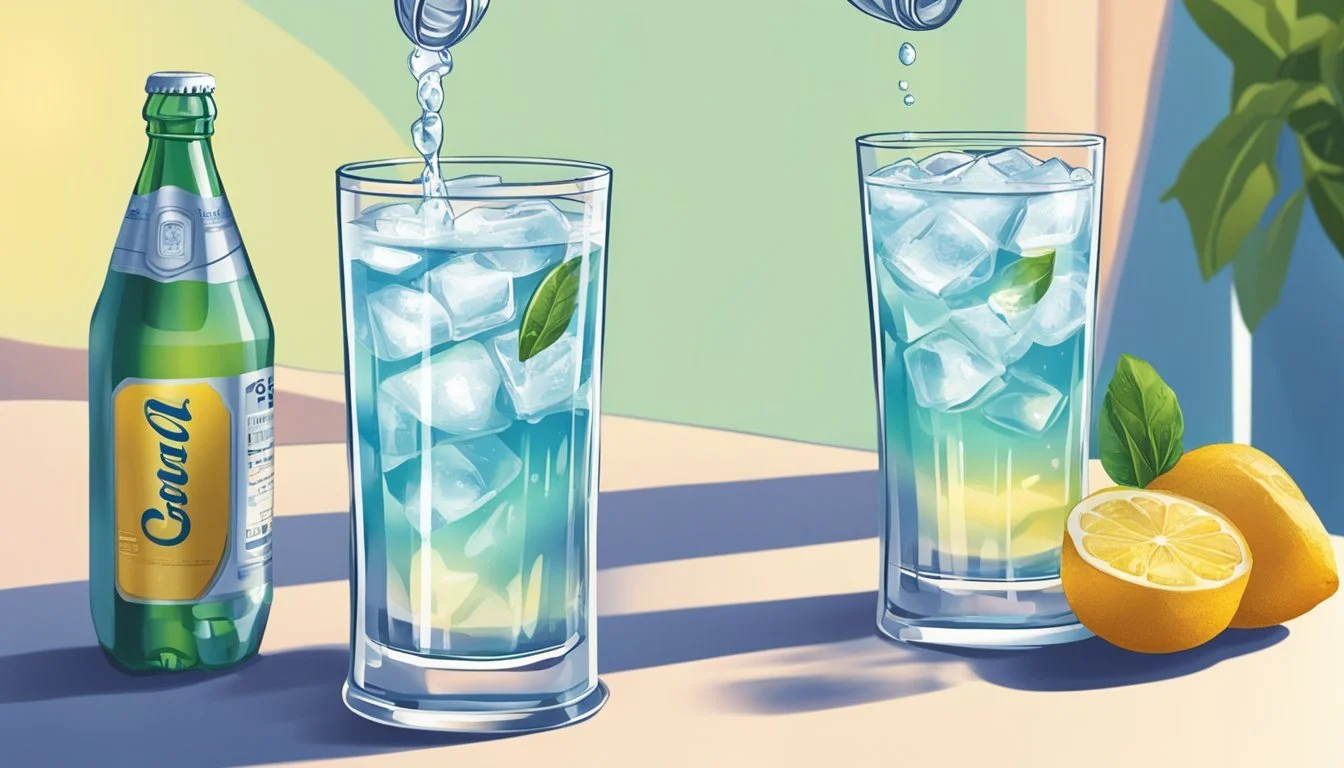How to Substitute Seltzer for Club Soda
A Step-by-Step Guide
Substituting seltzer for club soda is a seamless and straightforward alternative for a variety of recipes and beverages that require a carbonated kick. Both seltzer and club soda are forms of carbonated water, but there is a subtle difference between the two. Seltzer is simply water that has been carbonated, whereas club soda has added minerals such as potassium bicarbonate and potassium sulfate for taste. The lack of these minerals in seltzer makes it a nearly identical substitute that maintains the effervescence and texture in recipes without altering the flavor profile significantly.
When choosing seltzer as a replacement for club soda, the 1:1 ratio ensures consistency in both measurements and desired outcomes. This makes it an excellent option for cocktails, cooking batters, and other culinary uses where club soda is traditionally used. While seltzer water is flavorless and odorless, it is as bubbly as club soda and functions virtually the same way in recipes, making it the perfect substitute for anyone looking to match the carbonation without the mineral taste.
For those careful about the subtle nuances in taste between different types of carbonated waters, it's reassuring to know that using seltzer as a stand-in rarely disrupts the harmony of flavors. Its versatility is appreciated by chefs and bartenders alike, providing a practical solution in instances where club soda may not be available. Whether used in sweet or savory dishes, or simply as a refreshing beverage, seltzer water steps in effortlessly, maintaining the integrity of the dish or drink.
What Is Seltzer?
Seltzer is a refreshing beverage often enjoyed as a standalone drink or as a versatile mixer. Unlike other carbonated waters, its simplicity is key, characterized by its lack of added minerals or flavors.
Differentiating Seltzer and Club Soda
Seltzer and club soda are both forms of carbonated water, but there is a distinct difference between the two. Club soda typically contains added minerals, such as potassium bicarbonate and potassium sulfate, which can give it a slight taste. Seltzer, on the other hand, is pure carbonated water with no added minerals, resulting in a cleaner, more neutral taste that makes it a perfect substitute for club soda in various applications.
Composition and Varieties of Seltzer
Seltzer is simply water into which carbon dioxide gas has been dissolved under pressure. This process creates the effervescence seltzer is known for. There are various types of seltzer, ranging from plain—which is ideal for substituting for club soda—to flavored varieties which contain natural essence or oils to add a subtle hint of taste. These varieties make seltzer a versatile choice for those looking to enjoy carbonated beverages without additional calories or artificial ingredients.
Understanding Club Soda
When selecting a substitute for club soda, it's important to understand its unique properties and the role it plays in beverages.
Defining Characteristics of Club Soda
Club soda is a type of carbonated water that includes added minerals to enhance its flavor. The key minerals found in club soda typically include sodium bicarbonate (baking soda), sodium chloride (table salt), potassium sulfate, and occasionally disodium phosphate. These additions differentiate it from other carbonated waters like seltzer, which is solely water carbonated with carbon dioxide without any additives.
Common Uses in Beverages
Club soda is often used as a versatile mixer in the beverage industry, primarily due to its neutral taste and slight mineral flavor. It is a common component in cocktails and non-alcoholic drinks where it adds carbonation without altering the primary flavors of the beverage. In comparison, tonic water, which contains quinine for bitterness, can significantly change the taste profile of drinks.
Substituting Seltzer for Club Soda
When replacing club soda with seltzer, one must consider taste, mineral content, and how the substitution affects cocktail recipes to maintain the integrity of the flavor and texture of the beverages.
Taste Comparison
Club soda is carbonated water with added minerals that can impart a slightly salty taste. In contrast, seltzer is simply carbonated water with no added minerals, offering a more neutral flavor. Seltzer makes an excellent substitute for club soda in most recipes because of its similar carbonation level, though the absence of added minerals may result in a very subtle difference in taste. One shouldn't worry about a significant shift in flavor when making the switch, especially in complex or strongly flavored drinks.
Adjusting for Mineral Content
To mimic the mineral content of club soda, one might consider adding a pinch of baking soda to seltzer. This method works particularly well for drinks where the slight mineral taste of club soda is an essential component.
Mineral Comparison:
Mineral Type Club Soda Seltzer Adjustment Sodium Bicarbonate Present Absent Add a pinch if desired Potassium Sulfate Varies Absent Not typically needed
For the purist seeking an identical flavor profile, this adjustment can help bridge the gap between seltzer and the original club soda content.
Converting Cocktails
In cocktails, seltzer can replace club soda on a 1:1 basis. For example, it is an acceptable substitute in drinks like a Tom Collins or Mocktail where carbonation is more critical than minerality. In a Gin and Tonic, where tonic water with its distinctive bitter taste from quinine is typically used, substitution with seltzer would result in a less complex flavor profile. Therefore, seltzer is best suited as a cocktail mixer for drinks that do not rely on the bitter or mineral qualities of tonic or club soda.
Health Considerations
When substituting seltzer for club soda, one should consider the health implications such as sugar content and sodium levels. Seltzer typically does not contain added sugars or sodium, making it a healthier choice in some aspects than club soda or sugary sodas.
Seltzer Versus Sugary Sodas
Seltzer water is free of added sugars and typically has zero calories, making it a more hydrating and healthful option compared to sugary sodas. Sugary sodas can contribute to calorie intake and potentially lead to health issues like weight gain or tooth decay. One significant health benefit of choosing seltzer over sugary sodas is the absence of added sugar, which aligns with dietary recommendations to limit sugar consumption for better overall health.
Benefits of Reduced Sodium
Choosing seltzer over club soda can also have advantages regarding sodium intake. While club soda often contains added minerals, including sodium salts, seltzer is generally just carbonated water without these additions. A reduction in sodium can be beneficial for individuals managing blood pressure or looking to adhere to a low-sodium diet. Fewer added minerals mean seltzer can hydrate without contributing to daily sodium consumption. Here's a comparison:
Aspect Club Soda Seltzer Sodium Contains added sodium Typically sodium-free Health May affect sodium intake Better for low-sodium diets Hydration Hydrating Hydrating without added minerals
Choosing seltzer water can contribute to maintaining health by avoiding extra calories and sodium.
Creative Uses Beyond Beverages
When substituting seltzer for club soda, it's not all about quenching thirst; it extends to adding fizz and flavor in the kitchen and creating signature drinks. Here, the focus is on enhancing culinary creations and inventive mixology.
Cooking with Seltzer
Fluffy Pancakes and Waffles: Seltzer can be the secret ingredient for lighter, fluffier pancakes and waffles.
Ingredients: Flour, eggs, sugar, seltzer, butter
Directions: Use seltzer instead of milk or water in the batter to introduce a light texture.
Tempura Batter: Achieve a crispier texture in tempura batter by incorporating seltzer.
Ingredients for Batter: Flour, cornstarch, egg, cold seltzer
Method: Combine cold seltzer into the dry ingredients and dip vegetables or seafood before frying.
Unique Mixology Ideas
Seltzer-Infused Cocktails: Elevate cocktails with a splash of seltzer to add effervescence without the sodium content found in club soda.
Popular Mixes: Seltzer with a mix of sparkling wine or a touch of simple syrup can enhance various flavors in cocktails.
DIY Carbonated Juice: Create a refreshing drink by adding seltzer to your favorite juice.
Instruction: Combine equal parts of carbonated seltzer and fruit juice for a bubbly twist on traditional juice.
Gourmet Soda Flavors: Experiment with flavored waters or seltzer and simple syrup to concoct homemade sodas.
Suggestions: Infuse ginger ale elements or exciting flavors like vanilla or lavender for unique soda creations.
Choosing the Right Seltzer
When substituting seltzer for club soda, the right selection is crucial to match the carbonation and neutrality in taste, ensuring the integrity of your drink is maintained.
Brands and Flavors
Different brands of seltzer water provide varying levels of carbonation and a wide range of flavors. LaCroix, for instance, is a well-known brand that offers a plethora of flavors, from lime to passionfruit, without added sugars or artificial ingredients. One should look for brands that offer natural flavors and no added sweeteners to closely mimic the clean taste of club soda.
LaCroix: Broad flavor variety, zero calories
Polar: Northeast favorite, strong carbonation
Perrier: Natural flavors, higher mineral content
When choosing a flavored seltzer to replace club soda, one must consider its potential effect on the overall flavor profile of the drink.
Home Carbonation Systems
For those who prefer to customize their level of fizz, home carbonation systems like SodaStream offer an on-demand solution. These systems allow individuals to control the level of carbonation to match that of typical club soda, making it an ideal substitute. Additionally, users can carbonate plain water without any additives, keeping the taste as neutral as possible.
SodaStream: Custom carbonation levels; uses refillable CO2 cartridges
DrinkMate: Also carbonates juices and wines; interchangeable CO2 cylinders
While store-bought seltzer might come in pre-determined carbonation levels and could include added minerals or flavors, a home carbonation system gives the user full control over the outcome, resulting in a seltzer water that can be closely tailored to the characteristics of club soda.
Historical and Cultural Context
Seltzer and club soda have distinct historical backgrounds and cultural significances, from their culinary uses to their social implications.
Seltzer in Culinary Traditions
Historically, seltzer water originated from the German town of Niederselters, where naturally carbonated water was first bottled and sold. It gained popularity as a culinary ingredient and drink, often used as a sparkling base for cocktails and non-alcoholic beverages. This carbonated water could be produced artificially, making it widely accessible. Seltzer became a staple in various culinary traditions, contributing a fizzy texture to recipes and serving as a base for flavored sodas.
Club Soda in Social Settings
Club soda, on the other hand, emerged from the gentlemen's clubs of London in the late 18th century. Its invention allowed the fusion of carbon dioxide and water to produce a bubbling drink similar in effect to natural sparkling water. Club soda was not only served as a refreshment but also gained notoriety as a mixer in alcoholic beverages. It was culturally tied to social gatherings and formal settings, often associated with lime soda. While tonic water, which contains quinine extracted from cinchona trees, was used as a bitter drink to combat malaria, club soda is non-medicinal and primarily serves as a versatile cocktail component.







